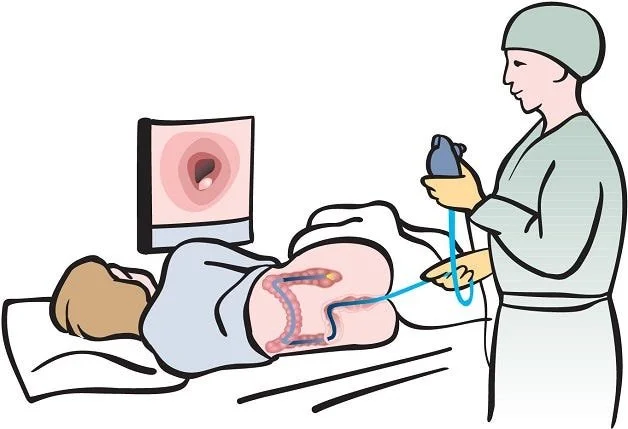Ulcerative colitis, a chronic condition affecting the colon and rectum, is commonly managed through medications to control inflammation and reduce symptoms. While medications are often a primary approach, exploring other treatment strategies can complement medical care. These non-pharmaceutical methods focus on lifestyle adjustments, stress management, and personalized recommendations based on diagnostic tests such as endoscopy, including esophagogastroduodenoscopy (EGD).

What Lifestyle Changes Can Help Manage Ulcerative Colitis Symptoms?
Several lifestyle adjustments can help people manage symptoms associated with ulcerative colitis. These are often in combination with medical procedures like an EGD(esophagogastroduodenoscopy) for diagnosis and monitoring. Strategies include changes to diet, physical activity, and daily routines. Dietary modifications play a key role in minimizing symptoms. Individuals may try eating smaller, more frequent meals, reducing high-fiber or spicy foods, and tracking their diet alongside symptom patterns to identify triggers.
Staying hydrated is particularly imperative, especially during active disease phases when dehydration is more likely. Physical activity, tailored to each person’s comfort level, can also support overall health. Gentle exercises like walking or yoga can promote digestion and well-being without causing strain, complementing other efforts to manage ulcerative colitis effectively. Together with tools like an EGD, these strategies support a comprehensive approach to care.
What Role Does Stress Reduction Play in Controlling Ulcerative Colitis?
Stress has been shown to affect many chronic conditions, including ulcerative colitis. Developing ways to reduce stress levels may complement other management strategies effectively. Patients often report that high stress levels coincide with the worsening of symptoms. To help mitigate these effects, some turn to relaxation techniques, including meditation, mindfulness, or deep breathing exercises. These practices can support both physical and mental well-being.
Building a more manageable daily schedule may also help lessen stress. Allocating time for hobbies, social connections, and adequate rest can create a balanced routine. Finding ways to support mental health may also improve the ability to cope with the demands of living with a chronic condition.
How Do Physicians Use EGD Findings to Recommend Alternative Treatments?
EGD, a diagnostic procedure commonly used to evaluate the upper gastrointestinal tract, offers detailed insights into a patient’s digestive health. Though ulcerative colitis primarily affects the lower gastrointestinal system, physicians sometimes use EGD findings to guide treatment approaches or identify coexisting issues. This procedure can help detect inflammation, ulcers, or other abnormalities within the gastrointestinal tract.
While not directly addressing ulcerative colitis, these findings may point to conditions that share overlapping symptoms. EGD results might identify acid reflux or stomach ulcers, requiring adjustments to treatment plans. The detailed observations made during an EGD often form part of a comprehensive care approach. By understanding the larger picture of gastrointestinal health, patients and physicians can work together to create personalized strategies that address multiple aspects of digestive well-being.
Consult a Gastroenterologist Today
Managing ulcerative colitis often requires a multifaceted approach tailored to each individual. Implementing lifestyle changes, adopting stress-reduction techniques, and utilizing diagnostic insights like EGD are all strategies that can support overall health. While medications remain central to treatment, these complementary methods offer additional pathways to improving quality of life. Make an appointment today to take the next step toward effective, comprehensive care.
-
Common Types of Sports Injuries and How to Prevent Them
Staying active supports strength, balance, and mood, yet sports injuries interrupt training and daily life. These injuries range from minor tissue irritation to ligament tears. They arise from overuse, poor mechanics, sudden load, or inadequate recovery. Here are some typical problems and practical steps to lower risk: Sprains & Strains Sprains affect ligaments, while strains […]
-
How To Prepare for Your First OBGYN Appointment
An OBGYN specializes in women’s reproductive health, providing care that spans from routine checkups to pregnancy and menopause management. Preparing for your first OBGYN appointment can help you feel more comfortable, make sure your concerns are addressed, and make the most of your visit. Here’s how to prepare for your first OBGYN appointment: Gather Medical […]
-
How To Treat ADHD
Attention-deficit/hyperactivity disorder (ADHD) affects focus, impulse control, and activity levels. Symptoms often include distractibility, restlessness, and trouble organizing tasks. Diagnosis involves a clinical history, symptom checklists, and input from family or teachers. Treatment targets daily function and safety while addressing co-occurring issues such as anxiety or learning differences. No single pathway fits everyone, so approaches […]
-
What To Expect During Your Colonoscopy Procedure
A colonoscopy is a medical procedure used to examine the inner lining of the large intestine and rectum. It involves the use of a flexible tube with a camera, which allows direct visualization of the colon to identify abnormalities such as polyps, inflammation, or lesions. This procedure is regularly performed for screening, surveillance, and diagnostic […]
-
How Pacemakers Help Manage Arrhythmias and Improve Quality of Life
The human heart depends on precise electrical signals to maintain its rhythm. When those signals become irregular or unreliable, the result is often a condition known as arrhythmia. Left unmanaged, arrhythmias can cause uncomfortable symptoms and potentially disrupt daily activities. Pacemakers offer a reliable solution to regulating heart rhythms, providing patients with a path to […]
-
How To Choose the Right Psychiatrist for Your Needs
A psychiatrist is a medical doctor who specializes in diagnosing and treating mental health conditions. Unlike other mental health professionals, psychiatrists can prescribe medications in addition to offering therapy. Their training equips them to handle complex or overlapping conditions such as depression, anxiety, bipolar disorder, and schizophrenia. Finding the right psychiatrist often starts with identifying […]







Leave a Reply